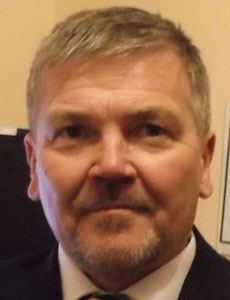Sponsored: TÜV SÜD Global Risk Consultants
Regulatory Compliance Is Not Always Enough to Ensure That Critical Equipment Is Safe and Reliable

When it comes to equipment like boilers and pressure vessels, simply passing regulatory mechanical integrity inspections may not always be enough to assure their safety. Year after year, equipment in full compliance with local jurisdictional/statutory inspection requirements still fails in service. Losses involving boilers and pressure vessels not only often result in significant damage and business interruption, but in the worst cases jeopardize the safety of personnel.
In short, compliance with these regulations is just the minimum legal requirement to operate a plant. This compliance does not ensure that all failure mechanisms have been addressed, and more importantly, it can create a false sense of security.
“In most countries, there are jurisdictional requirements to inspect equipment like boilers and pressure vessels,” said Mike Wood, Regional Manager of Boiler & Machinery for Global Risk Consultants, based in the UK. “But, just relying on these requirements to assure the safety of your equipment can be a flawed decision in some cases.”
It is also important to acknowledge that the scope and frequency of these inspection requirements vary widely from country to country. A risk manager based out of a parent company’s U.S. location may assume that overseas facilities are following all of the same inspection requirements as the U.S. operations. However, this is not always the case.
Pitfalls of Compliance as Minimum Standard

Mike Wood, Regional Manager of Boiler & Machinery
The development and implementation of inspection requirements has historically been reactive by nature. Significant changes to such requirements are normally enacted after there has been a major property loss or even loss of life.
Wood described an experience early on in his career as a risk engineer involving a boiler explosion at a client’s manufacturing plant in the Netherlands. The root cause of the explosion was attributed to a crack in one of the major boiler weld seams which caused major property damage, significant business interruption and serious injuries to employees.
Despite the aforementioned defect, this particular boiler had indeed passed a local inspection and was deemed compliant and legally safe to operate at the time.
“That’s a perfect example of how compliance doesn’t always guarantee safety,” Wood said.
After this incident, Wood went on to discover that the U.K. had revised their legal inspection requirements over a decade earlier, specifically including identifying defects in weld seams. To this day, the U.K. remains one of the few countries where such specific tests are mandatory, even though similar boilers are fabricated in the same way and subject to the same failure mechanisms around the world.
In an incident earlier this year, a U.S.-based industrial processing plant suffered a major loss caused by a steam vessel explosion. The incident resulted in fatalities, several injuries and extensive property damage. At the time of the incident, the equipment was reported to be in full regulatory compliance under local requirements, though investigative reports available in the public domain appear to indicate that the vessel was in poor condition.
“These legal requirements are just the minimum standards needed to operate a plant, but facility managers shouldn’t assume that compliance with these requirements assures they are doing everything they can to maintain the safety and integrity of their equipment,” Wood said.
Seeking Best Practices
Some jurisdictional guidelines provide reference material with best practices that are transferable. In addition, several industry advisory boards and committees produce best practice standards that exceed local legal requirements.
Various associations such as the Technical Association of Pulp and Paper Industries (TAPPI) and The National Board Inspection Code (NBI), published by the National Board of Boiler and Pressure Vessel Inspectors provide standards and guidelines for equipment, and are recognized internationally.
“These are some of the international standards we reference when we make recommendations to clients,” Wood said. “By implementing new best practices, we ensure that they not only meet their legal requirements, but, where appropriate, exceed them, reducing the likelihood of failure based on lessons learned from losses in the industry.”
The GRC Approach
Naturally, there will be facility managers who will resist recommendations to implement additional, more rigorous inspections because they believe they have done their part already simply by being in full compliance.
“That’s why GRC takes the time to truly understand our clients’ businesses, know their cost constraints, educate them about the potential risks, and make recommendations that are economically justifiable,” Wood said.
This customized approach is the strong foundation of the partnerships that Global Risk Consultants forms with its clients, regardless of the size of their operation. GRC works with clients to create corporate standards that fit the characteristics of their specific equipment and operations and, most importantly, draw from existing best practices, their own well-rounded backgrounds and knowledge of equipment processes, strengths and weaknesses.
“Over time you develop a sixth sense for it. If you know what type of facility you’re dealing with, you know perhaps the top 20 pieces of equipment and why they can fail, and that’s what you’ll focus on when you conduct a site visit,” Wood said.
“A good risk engineer will know what the typical failure mechanisms are, what type of damage a failure could cause, as well as the replacement timeframe for that piece of equipment and impact on the business. Then, he can focus both on ways to reduce the likelihood and severity of losses and assist in the development of long-term maintenance plans, sparing decisions and contingency planning,” he said.
The Unbundled Advantage
Global Risk Consultants is the leading unbundled property loss control provider worldwide, offering a complete portfolio of services. GRC goes beyond the parameters of traditional property loss control services by providing clients with customized and comprehensive reports permitting them to make informed, practical business decisions. As an unbundled provider that operates independently of any insurance company, GRC engineers examine risks beyond their potential impact on an insurance policy.
“A risk engineer from an insurance company will typically focus on the exposures that could trigger a claim against their policy,” Wood said. “For example, if a client has a $50 million self-retention, the insurance engineer might have little interest in lower level exposures that do not expose his underwriters. At GRC, we do ‘bottom up’ risk engineering, which considers the total cost of risk including the clients’ retained exposures.”
Going unbundled also means that any changes in a facility’s insurer or policy conditions would not preclude GRC’s relationship with that client. This enables risk engineers to intimately understand their client’s business and track their progress over time.
Advancements in technology have also led to the creation of GRC Connect, GRC’s proprietary database. GRC Connect serves as an electronic “file cabinet” for all reports, diagrams and project reviews. It also organizes and correlates data to effectively and efficiently benchmark locations, evaluate trends, assemble marketing summaries, manage recommendations, and access documents from anywhere in the world.
“[GRC Connect] allows us to drill down and look for common deficiencies. If we see similar equipment risks at other facilities, we’ll compare to see what recommendations are in place, and if there’s anything we can do to improve the exposure,” Wood said. The clients also retain ownership of their data and can access it at any time.
Since being acquired by its parent company, TÜV SÜD, GRC has also been able to strengthen the relationship to provide expanded risk management capabilities like forensic investigation, root cause analysis, and non-destructive turbine testing.
“There’s good synergy there because while we can make recommendations, we can’t always provide resources for implementation. In some cases, now, we can introduce TÜV SÜD as the people who can bring those capabilities to the table where that adds value,” Wood said.
Expert risk management recommendations combined with access to data and implementation resources offer a comprehensive and unique service that many bundled providers can’t match.
To learn more, visit https://www.globalriskconsultants.com/services/boiler-machinery-engineering.html.
This article was produced by the R&I Brand Studio, a unit of the advertising department of Risk & Insurance, in collaboration with Global Risk Consultants. The editorial staff of Risk & Insurance had no role in its preparation.











